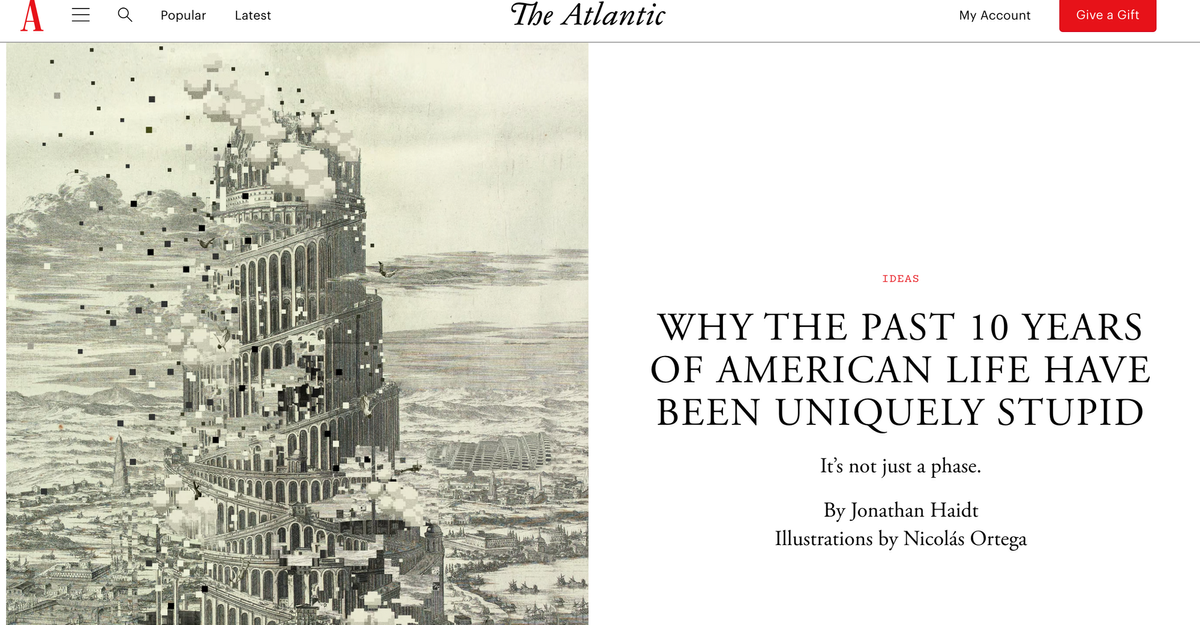Article Recommendation

This Atlantic article by Jonathan Haidt that my friend Niko shared with me almost perfectly captures the degradation of my brain during my 20s when I used social media as a large source of my identity and income. It's not a short read, but it's good.
Six years ago at 24-years-old, I had a gut feeling something was amiss with my usage of social media. I won the Leadville 100 and wanted to try running professionally. After scoring a contract and taking notes from my peers, I thought, Hmm this is strange that I need to post photos and quippy captions of myself on Instagram in order to get paid by my sponsors and to attract new sponsors. But if I'm trying to spread the good word about mitigating climate change and protecting our public lands it's okay, right?
For some people it might feel and be okay. For me, it was not. But it took years to realize what was happening and to pull the plug. I feel so much better sans constant social production and consumption. And yet I'm still worried about how social media is contributing to this post-Babel societal clusterfuck.
Will my choice – to not be as accessible, consumable, and consumptive online – do anything for the greater good? Of course not. I'm just one of billions. But at the very least, I feel better and have more mental bandwidth to think about topics other than what my echo chamber is screaming about.
After reading this article, I asked myself what I can do to help soothe the chaos. I think about my biggest motivator and worry in life: climate change. So more practically, I'm worried about U.S. midterm elections this fall. We need science-savvy elected officials to pass transformative energy policies. But for the first election in recent years, I won't be screaming my opinions on my Instagram. I'll probably knock on a few doors, talk to my friends and family about voting. And listen. I will listen more.